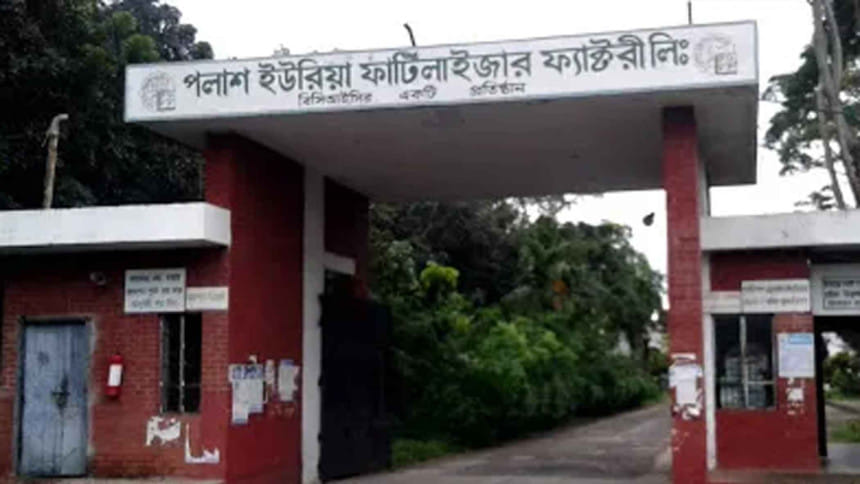Ghorashal Palash urea fertiliser factory: Fertiliser self- sufficiency delayed

The Tk 10,460 crore Ghorashal Palash Urea Fertiliser Factory project, taken up four years ago, is likely to cost 48 percent more and take two more years to be completed.
The project, aimed at attaining self-sufficiency in urea fertiliser by 2025, missed its deadline in June while already having spent half the money. Its implementing agency, Bangladesh Chemical Industries Corporation (BCIC), is now seeking two more years and Tk 5,040 crore more.
The proposal for the revised deadline and cost is likely to be placed for approval at today's meeting of the Executive Committee of the National Economic Council.
According to the project documents, the construction was delayed due to a setback in the loan agreement. The import of the machinery related to the factory was also hampered due to the Covid-19 pandemic.
Of the project cost, Tk 4,580.21 crore will come from the government funds and the remaining Tk 10,920 crore from foreign loans, including bidders' finance.
Japan Bank for International Cooperation (JBIC), Bank of Tokyo-Mitsubishi Ltd, Japan and HSBC, Hong Kong are the sources of the loans.
The cost of the project is set to rise due to the increase in the expenses for setting up rail and electricity supply lines; hike in loan management, insurance and registration fees; cost escalation for constructing residential buildings as well as for buying chemical goods, lubricants and gas for trial runs.
The government took up the project to produce 2,800 tonnes of fertiliser a day, near the existing Urea Fertiliser Factory Limited in Ghorashal and Palash Urea Fertiliser Factory Ltd in Narsingdi.
The new factory would be a modern and eco-friendly one, which would replace the two old factories.
Currently, the two factories produce 3.15 lakh tonnes of fertiliser annually. The new factory will have an annual production capacity of 9.24 lakh tonnes.
Annual domestic production of urea fertiliser varies from seven to 10 lakh tonnes, against the country's annual demand for 25 to 26 lakh.
Every year, around 13 to 20 lakh tonnes of urea fertiliser have to be imported.
The government took this project in a bid to cut down on import and save foreign currency.
The objective was to meet the huge demand deficit of urea and ensure the farmers get the fertiliser at reasonable rates.
BCIC officials hope once the granular fertiliser factory goes into operation, the import will be reduced by up to 56 percent, and the country won't have to import urea fertiliser from 2025.


 For all latest news, follow The Daily Star's Google News channel.
For all latest news, follow The Daily Star's Google News channel. 



Comments